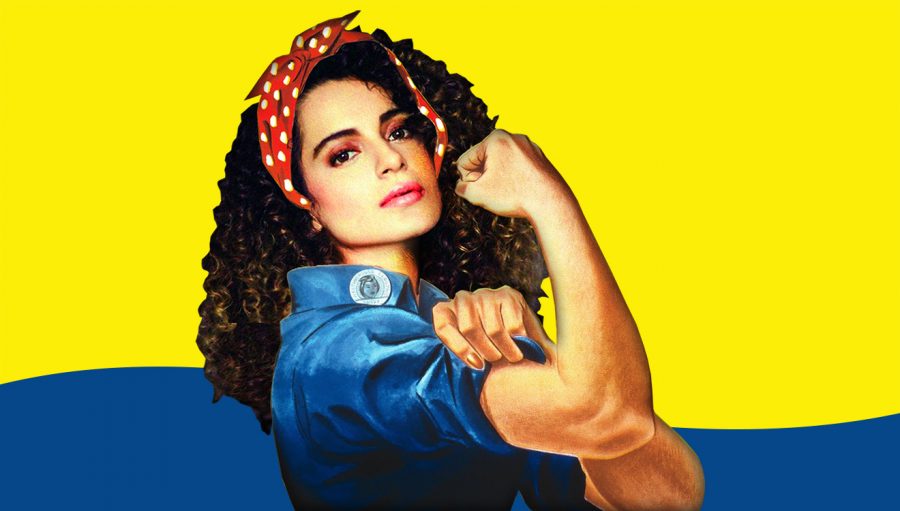Today, March 8, is observed as International Women’s Day. But you knew that already.
If you’ve spent even 10 minutes online yesterday and today, you would have been assaulted with PINK everywhere, been force-fed bromides about nurturing, caring, strong, feminine, mother, sister, goddess and every other SEO keyword possible. You’d have seen ad campaigns that run the range from the absolute banal/boring, to the silly, and the completely idiotic.
Women’s Day is not a day of celebration. It is not a day to give platitudes, and discounts for women, on things like detergent, soap, turmeric powder and all things you think a woman is interested in.
Women’s Day is a day of revolution. The earliest marches by women were held in 1909, by the Socialist Party of USA, and demanded equal rights, equal pay for women workers. Marches by textile industry workers – women – in Russia, birthed the February Revolution which overthrew the Emperor of All Russias, ushered in a constitutional monarchy, and helped make society less oppressive. Over the years, Women’s Day marches became fora in which women questioned the unequal and unfair systems they operated under. Till 1975, when the UN adopted the day, March 8 was largely observed in communist countries, as a means to gain equal rights for working women.
Today though, Women’s Day is a way to sell more products while patronising the very women one seeks to appreciate and honour.
*****
100 years on, the reasons that brought the early women marchers out on the street, still exist. We are still fighting for equal pay, better hours, respect of our colleagues, and the same chances to progress in our professions as the men.
This is especially true in the film industry.
Here, men still think women play the victim card, despite clearly not.
“I’m done with Kangana playing the woman and victim card. I am done! You cannot be this victim every time and have a sad story to tell about how you’ve been terrorised by the bad world of the industry … leave it.”
Here, men still think it is unfair for a new, young actress to ask as much money as the men.
“She (Kareena) asked for too much money and we had some kind of a fallout at that time. Mujhse Dosti Karoge! had just released, directed by Kunal Kohli. She said, ‘Aditya Chopra’s assistant Kunal Kohli has made this flop, so Karan Johar’s assistant, Nikhil Advani is not to be trusted either’.”
Karan continues, “The weekend of Mujhse Dosti Karoge’s release, I offered her Kal Ho Naa Ho, and she asked for the same (amount of) money that Shah Rukh Khan was getting. I said, ‘Sorry’.”
A D V E R T I S E M E N T“I was very hurt. I told my father, ‘Leave that negotiation room’ and I called her. She didn’t take my call, and I said, ‘We’re not taking her.’ And signed Preity Zinta instead. Kareena and I didn’t speak to each other for almost a year. For a year, we looked through each other at parties. It was very idiotic. She was a kid; she’s a decade younger than me.”
Here, men think women exist purely to dance, be sexy and pull in the (male) audience.
“If the costume designer comes to me with the heroine’s clothes covering up to the knee, I would strictly order them to shorten the length. I don’t mind even if my heroine is not happy or comfortable, but I insist and get it done. This is because audiences pay money to see the heroines in such clothes.”
Here, men think it’s absolutely OK to call a woman a slut, a whore, and an AIDS victim for simply having views men don’t agree with.
The film industry – like most other industries – look at women’s labour and women’s position as purely dispensable and a “liability”, an “extra cost”.
“If the actress has acted in a hit movie with another actor, the chosen hero gets apprehensive. He’d wonder whether the current pairing will work at all, and the actress won’t become a part of the film.”
“They don’t really care if the actress has done a terrible job in the previous movies; but if the movies were a hit, they’d want to continue with the successful pairing.”
A D V E R T I S E M E N T
In all this, women are constantly told that “the industry is like this only”, implying that if you cannot take it – take the oppression, the humiliation, the pain, the sexual and mental harassment, abuse, the devaluing of labour and bodies – you need to leave it. There is absolutely no question of an unfair system changing.
So perhaps a 100 years since the start of the revolution, the women in the film industry need to go marching, too.
*****



